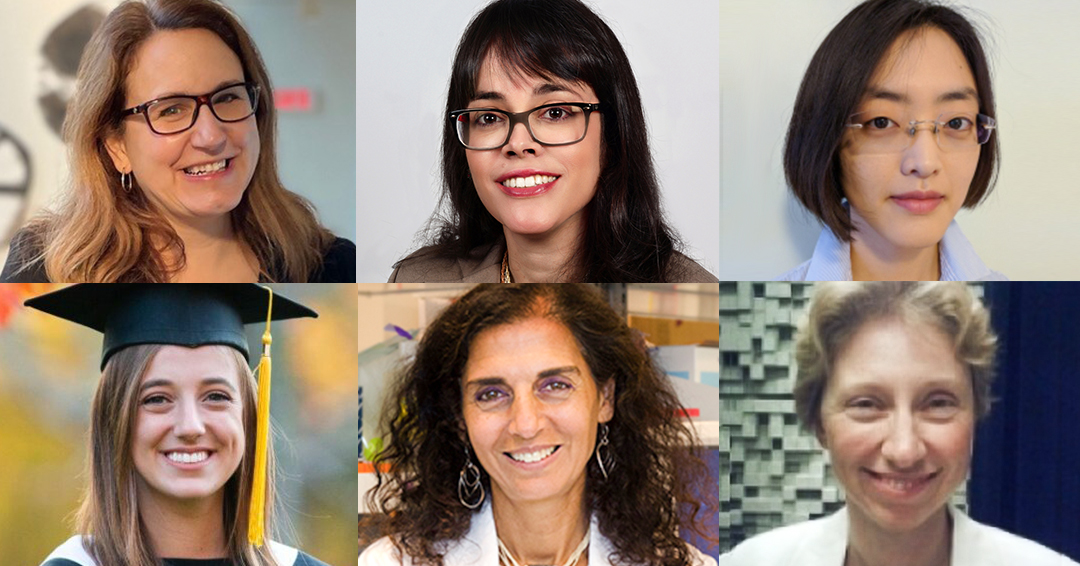
This Sunday, February 11, marks the United Nation’s International Day of Women and Girls in Science, which promotes full and equal access to science for women and girls.
According to the UN, a significant gender gap persists at all levels of science, technology, engineering, and mathematics (STEM) disciplines all over the world. Even though women have made tremendous progress towards increasing their participation in higher education, most countries, no matter their level of development, have not achieved gender equality in STEM.
February 11 is an annual reminder of the critical role women and girls play in science and technology, and that their participation should be strengthened. In advance of the International Day of Women and Girls in Science, we feature some of McGill’s talented female researchers who discuss their work, their inspiration, and their advice to women pursing a career in STEM.
Julia Baak, PhD Candidate in Wildlife Biology
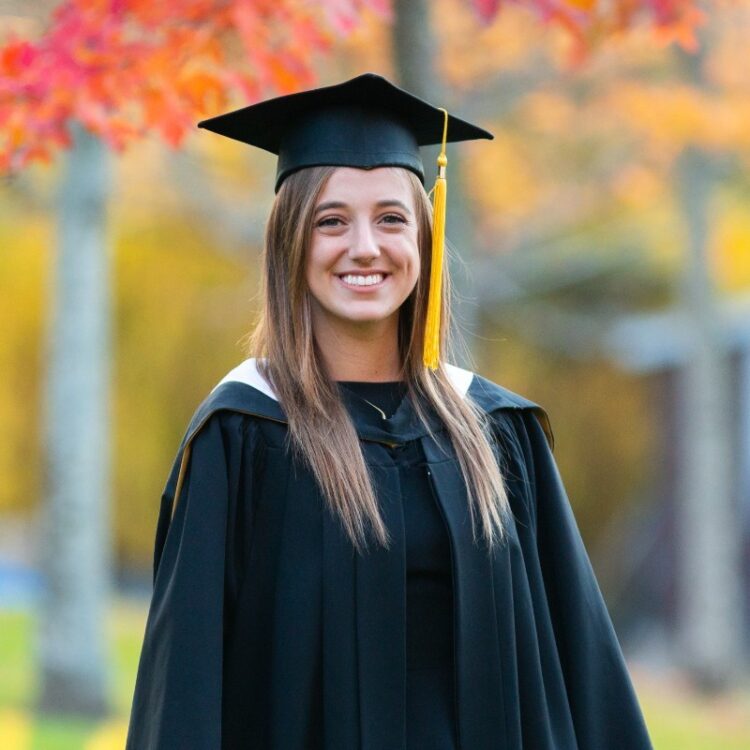 “What I love most about my work as an Arctic seabird biologist is how dynamic it is. I am always learning, which makes my job exciting but also gives me countless opportunities to grow and improve as a scientist,” says Baak, a Conservation Biologist at Environment and Climate Change Canada.
“What I love most about my work as an Arctic seabird biologist is how dynamic it is. I am always learning, which makes my job exciting but also gives me countless opportunities to grow and improve as a scientist,” says Baak, a Conservation Biologist at Environment and Climate Change Canada.
“The advice I would give to women in STEM is to get involved! If you do not see representation in your field, be the representation for others to be inspired by. Network,” says Baak. “Whether it is through work, volunteering, or extracurricular activities, connect with others in your field and continue to foster those connections throughout your career. Surround yourself with mentors and colleagues that lift you up. Stay inspired and inspire others, and always fight for what you believe in.”
Dr. Nada Jabado, PhD, Professor, Department of Pediatrics
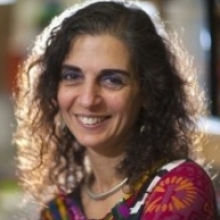 “As a clinician scientist, improving the treatment of patients is my priority. Research not only provides knowledge but also offers solutions and advancements in therapies, particularly in cases with no effective treatments,” says Dr. Jabado. “This is the driving force behind my commitment to research.”
“As a clinician scientist, improving the treatment of patients is my priority. Research not only provides knowledge but also offers solutions and advancements in therapies, particularly in cases with no effective treatments,” says Dr. Jabado. “This is the driving force behind my commitment to research.”
“Working in the diverse field of epigenetics, I describe my focus as studying the ‘music of life,’ with the epigenome acting as the crucial ‘partition’ interpreting our genetic information, akin to musical notes,” she says. “Exploring the epigenome’s role in various aspects such as cancer, organ development, and disease reveals continuous excitement and no dull moments.”
“My advice is to pursue your dreams, acknowledging that stumbling and failing are inevitable on any path. These challenges are essential for personal growth and open important doors,” says Dr. Jabado. “The key is to persist, fueled by the passion and excitement for our work.”
“I recognize the unique qualities of women, such as greater persistence, tenacity, attention to detail, and a holistic approach. Despite being just as creative and productive as men, there may be self-doubt and a tendency to downplay our seriousness,” she says.” I see this duality as a double-edged sword that shouldn’t be altered. Embracing these aspects is our strength, propelling us to greater heights.”
Eve J. Lee, PhD, Assistant Professor, Department of Physics
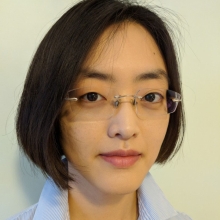 “I was always interested in solving puzzles growing up, and I was fortunate to be able to make that interest into a career,” says Lee. “As a theoretical astrophysicist, I like digging into the inner workings of celestial bodies including (exo-)planets and stars. The fact that these objects are so far away and that we cannot directly measure their properties forces us to be creative and often imaginative in designing our investigations, and I like how my work combines logical thinking with the allowance and need for creativity.”
“I was always interested in solving puzzles growing up, and I was fortunate to be able to make that interest into a career,” says Lee. “As a theoretical astrophysicist, I like digging into the inner workings of celestial bodies including (exo-)planets and stars. The fact that these objects are so far away and that we cannot directly measure their properties forces us to be creative and often imaginative in designing our investigations, and I like how my work combines logical thinking with the allowance and need for creativity.”
“In terms of navigating a career in STEM as a woman, I found two things to be important: the first is to build a network of supportive mentorship both among peers and with people who are more senior; and the second is to establish boundaries in all professional relationships,” says Lee.
Tina C. Montreuil, PhD, Associate Professor, Department of Education and Counselling Psychology
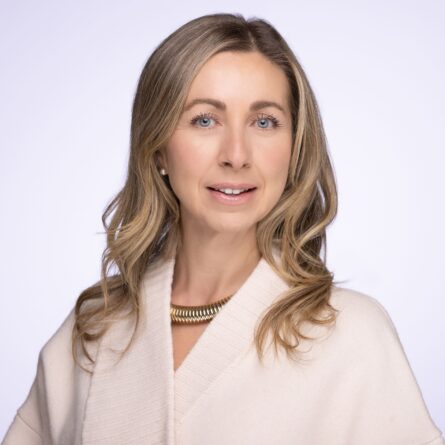
“Women often have a strong sense of empathy and a desire to make a positive impact on the world, and STEM fields offer countless opportunities to address real-world problems,” says Montreuil. “My curiosity and thirst for knowledge has driven me towards a career in science where I have the opportunity to explore, discover, and aim to innovate.”
“What I find most rewarding about investigating mental health and well-being during pregnancy is the opportunity to make a tangible and positive impact on the lives of mothers, children, and families during a critical period of development. My career as an applied and clinical scientist offers me the opportunity to promote early detection and intervention, address health disparities, and advocate for policy changes. All contribute to make a meaningful difference in the lives of individuals and communities.”
“Overall, women in STEM are using their skills, knowledge, and passion for innovation to address some of the most pressing challenges facing humanity and create a more equitable and sustainable world for all. Their contributions are not only advancing scientific and technological progress but also making a meaningful difference in the lives of others.”
Caroline Palmer, PhD, Professor, Department of Psychology
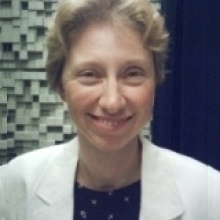 “How I became a scientist who studies sound: In grade school, a music teacher took us to see the opera and then helped us to produce the opera in our school. I fell in love with the music, and I became the pianist-accompanist for the school play,” says Palmer. “One of the actors carried a large sword that flew off the stage and landed in my lap while I played the piano. Our teacher gave me a hug for continuing to play so that the actors could keep the beat and sing their song.”
“How I became a scientist who studies sound: In grade school, a music teacher took us to see the opera and then helped us to produce the opera in our school. I fell in love with the music, and I became the pianist-accompanist for the school play,” says Palmer. “One of the actors carried a large sword that flew off the stage and landed in my lap while I played the piano. Our teacher gave me a hug for continuing to play so that the actors could keep the beat and sing their song.”
“This teacher inspired me to do the best I can, and now I encourage young scientists to draw on their strengths when obstacles get in the way,” she says.
“My advice for students is: Think of the most meaningful moments in your life. Which of your strengths did those moments show? If that is how you want to feel every day in your career, try to nurture those strengths.”
Dr. Patricia Pelufo Silveira, PhD, Associate Professor, Department of Psychiatry
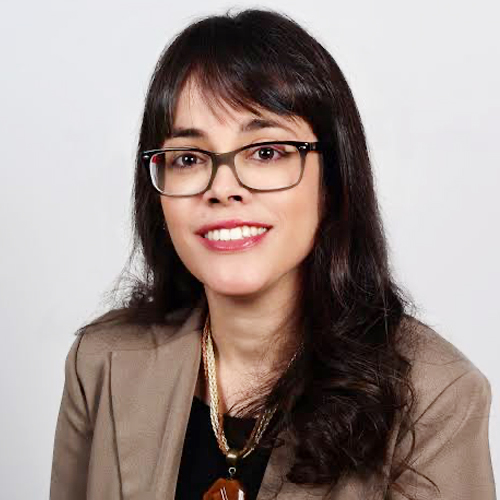 “I started medical school at 17. My inaugural Physiology class was given by Prof. Maria Marques, who recently retired. She told us about her work with Prof. Riet Correa, who was a pediatrician and physiologist, and with Bernardo A. Houssay, who earned the Nobel Prize in Physiology or Medicine in 1947,” says Dr. Pelufo Silveira. “Their collective discoveries about insulin secretion and signaling were pivotal for the understanding of hormonal feedback control, central to all aspects of modern endocrinology.”
“I started medical school at 17. My inaugural Physiology class was given by Prof. Maria Marques, who recently retired. She told us about her work with Prof. Riet Correa, who was a pediatrician and physiologist, and with Bernardo A. Houssay, who earned the Nobel Prize in Physiology or Medicine in 1947,” says Dr. Pelufo Silveira. “Their collective discoveries about insulin secretion and signaling were pivotal for the understanding of hormonal feedback control, central to all aspects of modern endocrinology.”
“Prof. Maria Marques was so emotional and so passionate during her talk, fascinating me with the idea of having a job where I could be creative, innovative, and passionate,” she says. “Not long after, I started working with Prof. Carla Dalmaz as an assistant. Prof Dalmaz is an example of an excellent scientist, an extremely kind colleague, and a dedicated mother. I stayed in her lab until the end of my PhD before moving to Canada. I like to think that I inherited her mentoring skills and her curiosity, and her ability to integrate personal and professional aspects in a very healthy way.”
Alanna Watt, PhD, Associate Professor, Department of Biology
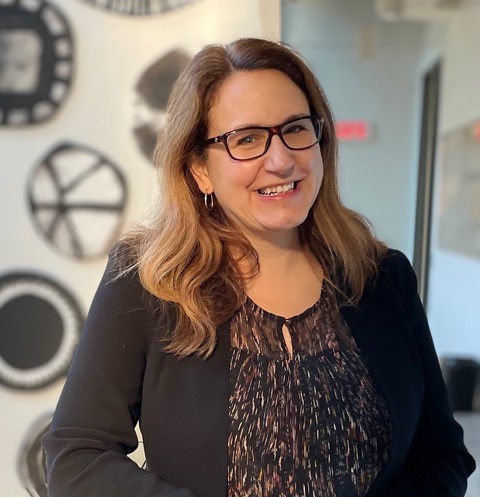 “The most exciting thing about my work is discovering new things about how the brain works. That’s the thing that gets me up in the morning,” says Watt. “In science, you have a hypothesis, then you design and run an experiment to test that hypothesis. People might be surprised to learn that it’s not just proving your hypothesis that is exciting. Disproving it can be pretty fun too! It shows you that you don’t understand what you thought you did and need to modify your hypothesis. There is nothing like good data that disproves your hypothesis to make you go back to the drawing board!”
“The most exciting thing about my work is discovering new things about how the brain works. That’s the thing that gets me up in the morning,” says Watt. “In science, you have a hypothesis, then you design and run an experiment to test that hypothesis. People might be surprised to learn that it’s not just proving your hypothesis that is exciting. Disproving it can be pretty fun too! It shows you that you don’t understand what you thought you did and need to modify your hypothesis. There is nothing like good data that disproves your hypothesis to make you go back to the drawing board!”
“The second source of joy from my work comes from the mentoring I do with my trainees. The time that students spend in my lab is a formative period of intense intellectual growth and development for them, but I learn and grow from the experience too. It’s a privilege to be able to partake in training future scientists!”
